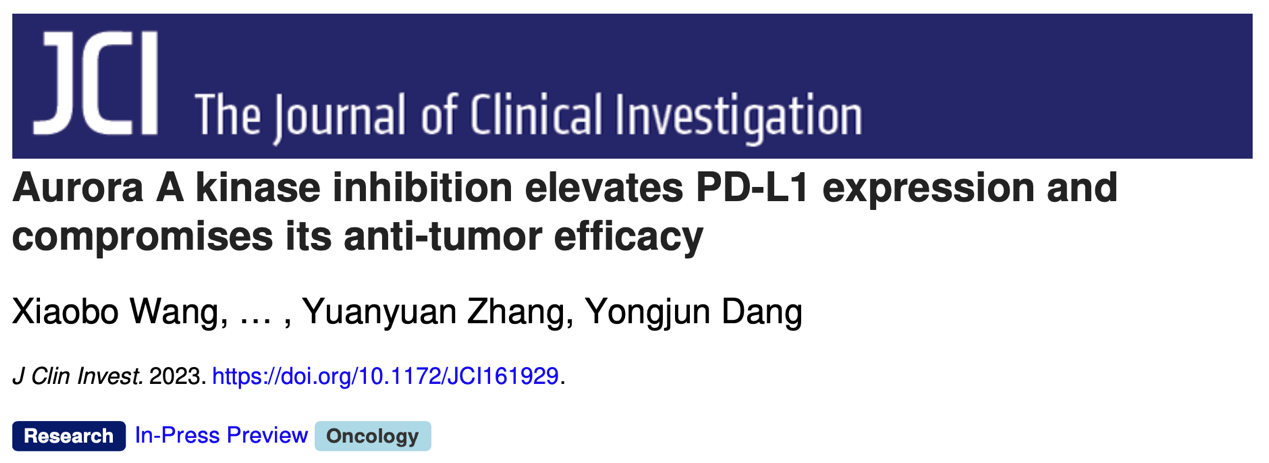DANG Yongjun's team from the Center for Novel Target and Therapeutic Intervention of Chongqing Medical University, together with LUO Cheng's team from the Shanghai Institute of Materia Medica, Chinese Academy of Sciences, published a research paper entitled "Aurora A kinase insertion elevations PD-L1 expression and competes its anti-tumor efficiency" in the Journal of Clinical Investigation. In this work, researchers found that Aurora A inhibitor Alisertib can increase the expression of immune checkpoint protein PD-L1 in tumor cells and immune cells in mice, inhibit the anti-tumor immune response of T cells in mice, and promote tumor immune escape and drug resistance.

DANG’s team has established a series of high-throughput screening technologies for tumor immunity to discover active small molecules that regulate tumor microenvironment with in-depth mechanism research conducted. This study reveals the immune regulatory function of Aurora A inhibitors. This study also indicated the potential reasons for the poor anti-tumor efficacy of Aurora A inhibitors in clinical trials, which is of great significance for improving the clinical anti-tumor performance of these inhibitors.